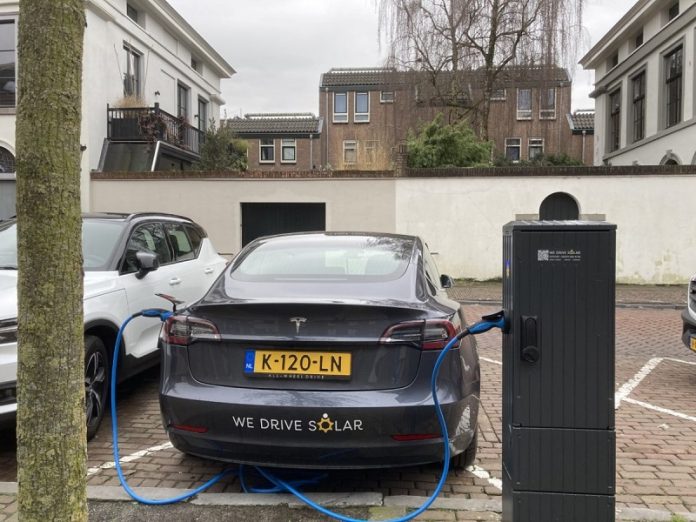The Netherlands has confirmed itself as one of the most creative and innovative countries when it comes to managing strong renewables energy development and, at the same time, an increasing number of grid-capacity issues. This week, Dutch start-up We Drive Solar and the Korean conglomerate Hyundai have announced a plan to deploy 500 EV recharging stations with bi-directional technology in the city and region of Utrecht.
Through the recharging stations, the electric vehicles(EV) will not only be recharged but also deliver power to the grid when the storage of renewable energy on a large scale is more needed. The EV stations will be initially tested on Hyundai’s Ioniq 5 car, which is equipped with bi-directional charging technology. “By early 2022, the number of cars [will be] scaled up to 150 bidirectional shared cars in Utrecht,” the two companies said in a statement.
The project includes standardization and embedding of protocols, software-mediated control of charging stations, scientific validation of the proposed “bi-directional ecosystem,” the large-scale application of bidirectional shared cars in a green urban district, and coupling car-sharing reservations with bidirectional charging.
The Dutch company and Hyundai announced their partnership to bring this bi-directional solution to PV system owners, in mid-April.
We Drive Solar is also participating in the €3.3 million ‘Robust’ research project aimed at providing the congested Dutch power network with more flexibility. Among the project partners, there are Delft University of Technology, Utrecht University of Applied Sciences, the Municipality of Utrecht, and the Municipality of Arnhem.








